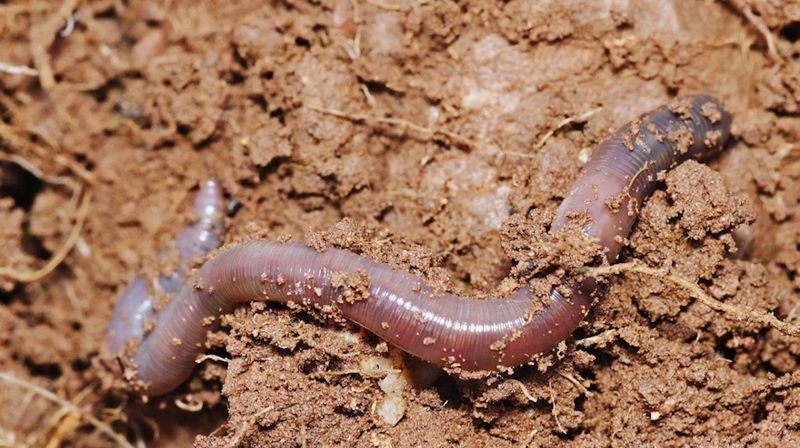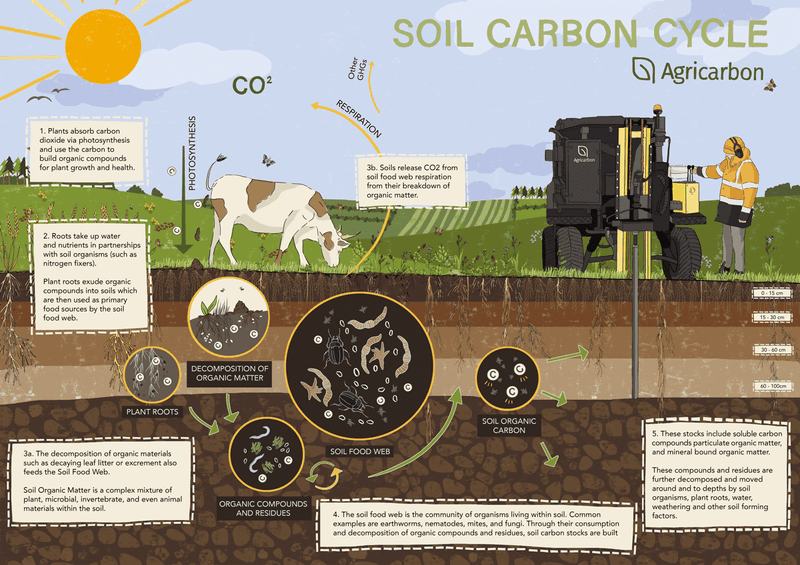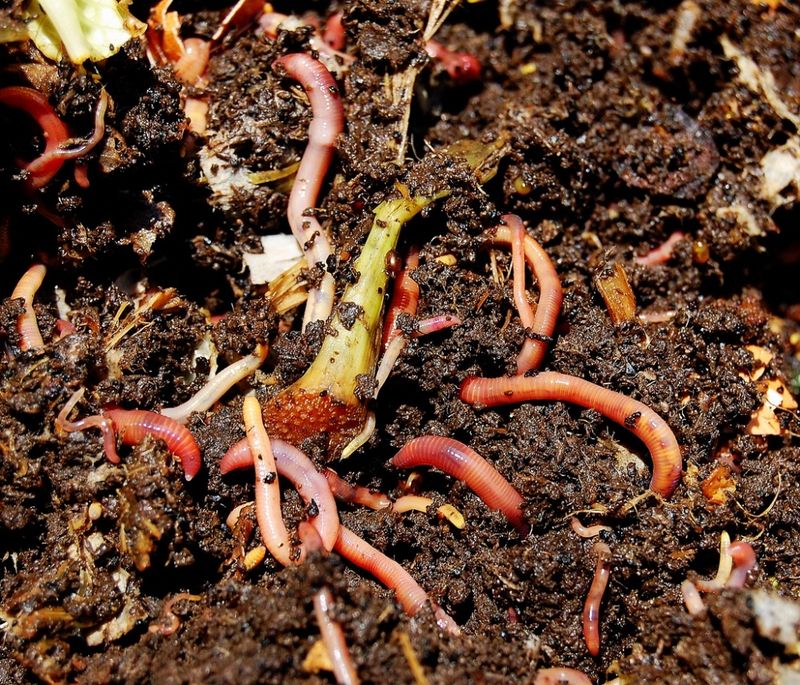Earthworms have long been known as the gardeners’ best friend, but new research reveals their impact on crop plants is far more profound than previously understood.
This discovery could revolutionize agricultural practices, promoting healthier crops and more sustainable farming.
In this blog, we explore ten intriguing insights from this groundbreaking study, each shedding light on the multifaceted role of earthworms in agriculture.
1. Earthworms Enhance Soil Fertility
Earthworms are nature’s soil enhancers, boosting fertility in remarkable ways. Their burrowing activity aerates the soil, promoting better water infiltration and root growth.
As earthworms consume organic matter, they decompose it, releasing essential nutrients back into the soil. This process creates a nutrient-rich environment, perfect for crop growth.
Farmers can leverage this natural phenomenon to reduce dependence on chemical fertilizers, leading to more sustainable farming practices. Understanding the role of earthworms in soil health can change the way we approach agriculture, making it more eco-friendly and efficient. It’s an exciting development!
2. Pest Control Allies
Earthworms indirectly contribute to pest control, offering a natural advantage to farmers. Their activity boosts microbial diversity in the soil, which can suppress pest populations.
This biological control reduces the need for chemical pesticides, promoting a healthier ecosystem. Farmers may find that integrating earthworm-friendly practices can lead to cost savings and environmentally friendly pest management.
The research suggests that focusing on soil health and earthworm activity could be a game-changer in sustainable agriculture, providing a win-win situation for both crops and the environment.
3. Improved Water Management
Earthworms play a crucial role in water management, aiding in drainage and reducing soil erosion. Their tunnels create pathways for water to infiltrate the soil, preventing waterlogging.
This natural drainage system can be particularly beneficial in regions with heavy rainfall, helping to maintain optimal soil moisture levels.
Emphasizing earthworm activity in agricultural planning can lead to better crop resilience and reduced risk of flood damage. Farmers interested in sustainable practices should consider the water management benefits that earthworms provide, aligning with nature’s way of maintaining balance.
4. Soil Structure Architects
Earthworms are architects of soil structure, creating a network of tunnels that enhance soil integrity. These tunnels allow roots to access air and nutrients more efficiently.
By breaking up compacted soil, earthworms improve the soil’s physical properties, making it more friable and easier to work with.
Farmers can benefit from understanding how earthworms contribute to soil architecture, reducing the need for mechanical tilling. Embracing the natural soil-building abilities of earthworms can lead to healthier crops and more productive lands. It’s a fundamental shift in how we perceive soil health.
5. Organic Matter Decomposition
Earthworms excel at decomposing organic matter, turning waste into valuable soil amendments. Their digestive process breaks down complex materials, enriching the soil with humus.
This decomposition is vital for recycling plant residues and enhancing soil fertility. Farmers can tap into this natural process to reduce waste and improve soil quality.
Earthworms’ role in organic matter decomposition underscores their importance in sustainable agriculture. By fostering environments conducive to earthworm activity, farmers can build fertile soils that support robust crop growth and minimize reliance on artificial inputs.
6. Enhanced Crop Yields
Research indicates that earthworm activity correlates with increased crop yields. Their influence on soil fertility and structure creates ideal growing conditions.
Crops benefit from the improved nutrient availability and soil aeration provided by earthworms, resulting in healthier and more productive plants.
Farmers aiming to boost yields might find success by promoting earthworm habitats. This approach aligns with sustainable agriculture goals, fostering an environment where both crops and earthworms thrive. It’s a natural partnership that promises better returns and sustainable growth.
7. Carbon Sequestration Champions
Earthworms contribute to carbon sequestration, playing a part in mitigating climate change. Their activity stabilizes organic carbon in the soil, reducing atmospheric CO2.
This process enhances soil carbon storage, a critical component in climate-smart agriculture. By understanding and leveraging earthworms’ role, farmers can participate in global carbon reduction efforts.
Encouraging earthworm populations in agricultural fields represents an opportunity to combat climate change while improving soil health. This dual benefit positions earthworms as essential allies in creating sustainable and resilient agricultural systems.
8. Biodiversity Boosters
Earthworms enhance biodiversity in agricultural ecosystems, supporting various plant and insect species. Their activities create habitats and resources for other organisms.
By improving soil health, earthworms foster environments where diverse life forms can thrive. This biodiversity is crucial for resilient agricultural systems.
Farmers focusing on biodiversity can benefit from earthworm activity, ensuring balanced ecosystems that support crop production. Embracing earthworms as biodiversity boosters can lead to more robust and sustainable farming practices, safeguarding the environment for future generations.
9. Soil pH Regulation
Earthworms influence soil pH, contributing to a balanced growing environment. Their digestion processes can alter soil acidity, benefiting crops sensitive to pH changes.
This natural regulation helps maintain optimal conditions for plant growth without chemical interventions. Farmers can harness this phenomenon to manage soil health more naturally.
Understanding earthworms’ role in pH regulation offers insights into sustainable soil management. By fostering earthworm activity, agriculturalists can create an environment harmonious with nature, promoting healthier and more productive crops.
10. Natural Soil Amendments
Earthworm castings serve as natural soil amendments, rich in nutrients and beneficial microbes. These castings enhance soil fertility and structure, promoting healthy plant growth.
Farmers can utilize earthworm castings as an alternative to synthetic fertilizers, aligning with organic farming principles. This practice supports sustainable agriculture and environmental stewardship.
By understanding the value of earthworm castings, agriculturalists can improve soil health and productivity. It’s a simple yet effective way to embrace natural solutions for farming, creating a cycle of renewal and growth that benefits both crops and the planet.










